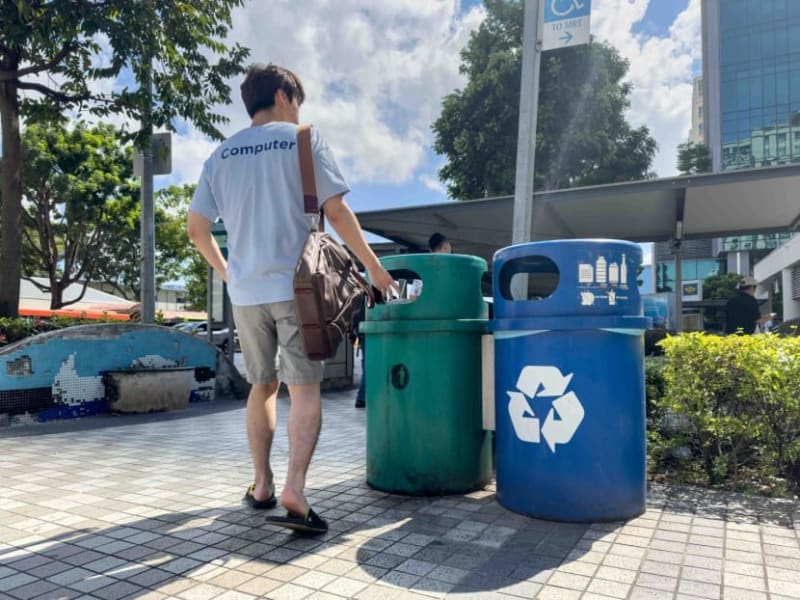Here’s an excerpt from the podcast:
Tan Huileng:
When we’ve gone door to door do some surveys or road shows, we realise it’s quite important to do two things. One is, people have to connect with the minds and connect with the hearts, right? So connecting the minds is more than just “recycling is good and recycling saves the earth.”
I think it’s more (like) “How can we for sure say that when we put something into the bin, or when we send something for recycling, it really gets recycled.”
Crispina Robert:
So they don’t trust that it does get recycled?
Huileng:
Yes, that is one. The second one is that the bins that they see are so messy sometimes. It looks like the general trash bins. And they are like, “Hey … are my things really being recycled, or is it just going to be thrown away?”
Crispina:
So (they think) what’s the point, right?
Huileng:
Exactly. We have to really understand the infrastructure. Find different ways, maybe different kinds of infrastructure, segregated waste recycling that can nudge them to do a little bit better, to convince them that recycling still works.
Crispina:
We did a quick poll on CNA’s social media channels and received more than 17,000 votes. Some 64 per cent of you said that, yes we recycle because it matters. So the “heart” part is working. I was quite surprised. So good job, CNA followers.
And those who don’t recycle – two were their top reasons. One, the bins are always full. Two … they say it’s already contaminated so what’s the point? Which is why they throw everything into the regular bin.
In fact, 40 per cent (of recycled waste) is contaminated. That sounds like quite a lot. So why is it that Korea, Japan, Taiwan, can nick this contamination problem, but we can’t?
Prof Tong Yen Wah:
(A) critical part for those countries is that their waste are being sorted by the general public, so they don’t have a general recycling bin where you put everything in – commingled recycling.
In a lot of countries where they have commingled recycling, contamination does tend to happen. In Europe, in US, they do this a lot, and they found that it happens. But in Japan, Korea, Taiwan, they have separate recycling bins. But they don’t actually have bins. When they actually dispose of it, they have to pack it separately, and then different trucks will come to collect them separately.
